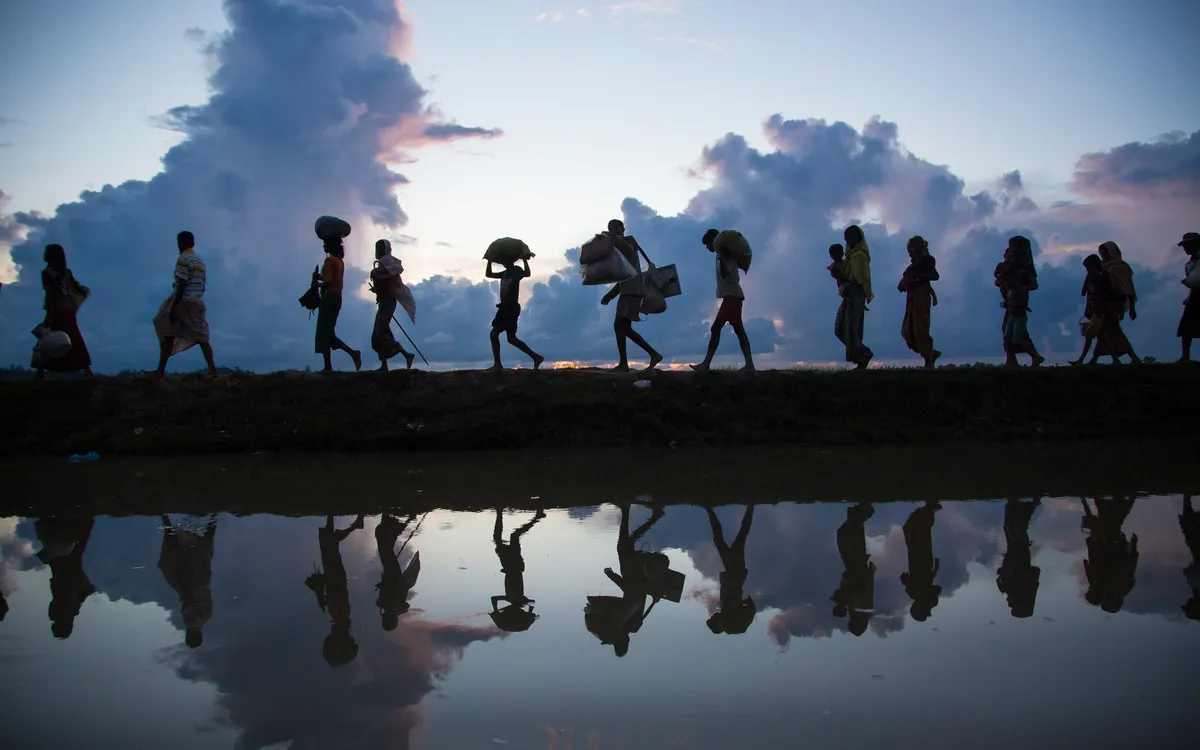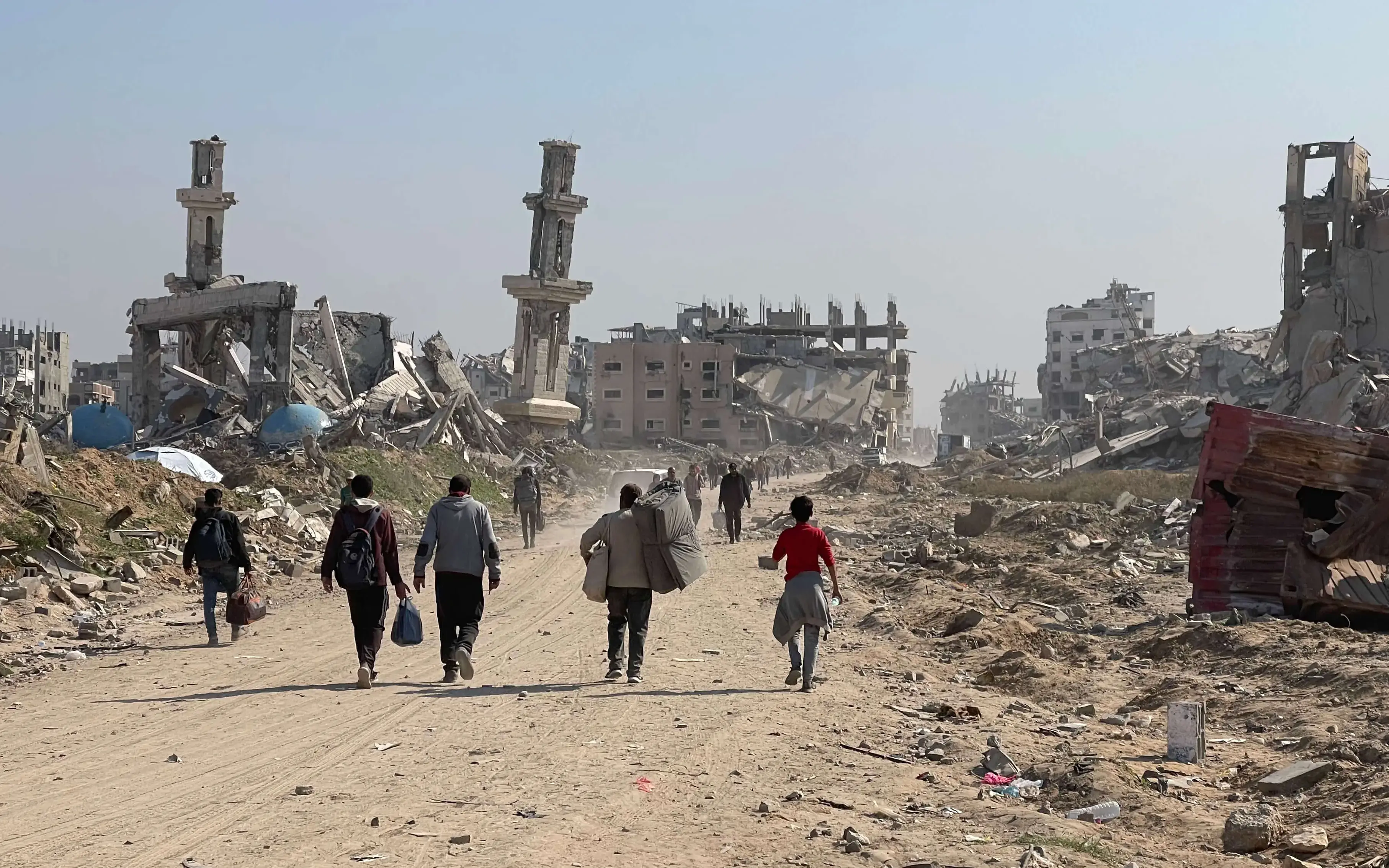The EU closes the migration pact: An agreement that questions the right to asylum and undermines human rights
Entities defending the rights of migrants and refugees criticize an agreement that strengthens border control and toughens reception conditions.
After nearly four years of intense and tough negotiations, the European Union (EU) has announced the political agreement for the future European migration pact, one of the major pending issues in European politics in recent years and one of the hurdles that has generated the most tension within the community bloc.
The long-awaited agreement between the European Council and the European Parliament constitutes a new far-reaching normative framework regarding European migration policy. Comprising five regulations, it constructs a new architecture concerning the management of the arrival of migrants, regulating the entire process from arrival at the borders to the granting or denial of asylum.
However, the political agreement reached under the Spanish presidency of the EU, which the Pedro Sánchez government had set as an absolute priority, still needs the approval of the European Parliament and the Twenty-Seven to be formally adopted.
A historical setback in terms of human rights and asylum
For organizations defending the rights of people in transit, the agreement confirms their worst fears, as it represents a significant setback in terms of human rights and asylum, while legally establishing this Fortress Europe that criminalizes migrants and exposes them to a serious situation of lack of protection.
"The agreement represents a very serious setback regarding the human rights of migrants and refugees arriving at European borders and is far from guaranteeing and facilitating legal and safe pathways for people in transit to Europe," summarizes Verónica Barroso, Amnesty International's (AI) head of domestic policy.
In the same vein, Irina Samy, a NOVACT technician, makes a "disastrous" assessment and considers the pact even worse than expected. "The agreement greatly worsens the rights of migrants and refugees," she asserts.
Meanwhile, the Comissió Catalana d'Ajuda al Refugi (CCAR) maintains, in a statement, that the pact "strengthens border control, facilitates the return of refugees - leaving them in a situation of vulnerability - and does not solve the problem of migratory pressure on receiving countries. Furthermore, it emphasizes that the agreement makes no reference to programs for the inclusion and integration of migrants and refugees in Europe and forces them to risk their lives to reach European territory, as it does not address the absence of legal and safe routes.
Indeed, the new migration rules consolidate a strict control of the EU's external borders, toughen reception conditions, and establish a mechanism of 'flexible solidarity' that allows States to evade mandatory redistribution quotas - even in crisis situations - in exchange for a payment of twenty thousand euros for each person rejected, opening the door to a clear violation of the right to asylum.
Moreover, as Verónica Barroso makes clear, this 'à la carte solidarity' "will not solve the problems that receiving countries of first entry such as Spain, Greece, and Italy may have; on the contrary, it will worsen the situation of collapse and aggravate the lack of guarantees for people at entry points such as the Canary Islands, for example."
Especially considering that the pact imposes no firm commitment regarding accountability and monitoring of migration policies at borders, shaping "spaces of impunity and serious human rights violations," AI warns.
The CCAR goes further, stating that this mechanism of flexible solidarity "commodifies the lives of refugees" and implies that states do not contribute to relocations, consequently reinforcing the deportation system.
Border detentions undermining rights
In fact, another controversial point of the agreement is border detentions, extending their terms and including an accelerated asylum procedure that bypasses formal proceedings and reduces guarantees for access to this recognized right. "Accelerated procedures diminish procedural guarantees and the assessment of potential vulnerabilities because they do not allow for an adequate assessment of the individual's personal conditions and the country of origin," alerts the CCAR.
Thus, the pact foresees control and registration of migrants arriving at the borders by authorities, including identification through fingerprinting and facial data. A procedure that will also affect families, minors from the age of six, and people in highly vulnerable situations.
"Far from guaranteeing the protection of migrants and refugees, the regulation will increase serious human rights violations at the borders and reduce guarantees for access to asylum for people seeking international protection," laments Barroso, who adds that the pact "includes a series of very worrying measures."
Among them, she cites, for example, the inclusion of the concepts of instrumentalization and force majeure in the crisis regulation, which allows states to incorporate exceptions and derogations to asylum regulations, "and this will likely lead to a lot of arbitrariness and violations of the human rights of migrants and refugees," emphasizes AI's representative.
Irina Samy of NOVACT also points out that the agreement "promotes returns to third countries considered safe, according to each country's criteria." A measure that validates and deepens the European strategy exemplified in agreements signed with countries such as Tunisia or Turkey - where serious violations of the human rights of migrants and refugees have been documented - to tighten migration control in exchange for money.
Another step in the criminalization of migrants and refugees
All of this shows that the positions that prevailed in closing the agreement have been those defending EU states that advocate for migration policies that do not guarantee rights and prioritize border control and Fortress Europe. In a context marked by the rise of the far right across Europe, the pact aligns more with their positions than with those initially proposed by the European Parliament, which were much more protective in terms of fundamental rights.
"In the end, with this security-focused and restrictive approach, the agreement conveys a message of greater border security and criminalization of migrants and refugees, who are people with rights who have been forced to flee their countries, often due to conflict and persecution," says Barroso, who believes that Europe "should guarantee their protection instead of building a fortress that denies them entry, even in situations of great vulnerability."
However, Irina Samy recalls that the practices endorsed by the pact were already being carried out at European borders. "Border detentions, the criminalization of people... these and other illegal practices were already known to be happening at the borders, and in a way, this pact shelters and legitimizes them, which is very serious."
Therefore, for the NOVACT technician, "we are facing an agreement that reinforces the idea that there are people who deserve to migrate and people who don’t, while accelerating procedures and making them more discriminatory; ultimately, everything will be much faster, more violent, and more aggressive for migrants and refugees," she concludes.







Add new comment